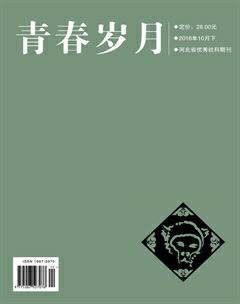Cultural Reasons behind English and Chinese Idioms
王蕊
Abstract:Idiom is a unit of a language constituted by words. Usually being bigger than words in size and function, idiom universally exists in a great number in a language which has a long history. Both English and Chinese, which are widely used and rich in expressive devices with glory of culture, have a multiple of idioms. Knowledge of the cultural reasons behind English and Chinese idioms will be of great help to the English learners not only in understanding what idioms mean, but also in giving a successful treatment of cultural flavors in idiom translation. In this paper, a number of examples are cited to illustrate the cultural reasons behind idioms in both English and Chinese. It is supposed to help the readers to understand idioms and avoid the misunderstandings caused by misuse of idioms in cross-cultural communications.
Key words:English and Chinese idiom; culture; cultural reason
1. Introduction
1.1 Definition of culture
Culture is regarded as sum of human creation of materials, institution and spirit, and transmits from generation to generation. It is commonly used in three basic senses: firstly, excellence of taste in the fine arts and humanities, also known as high culture. Secondly, an integrated pattern of human knowledge, belief, and behavior that depends upon the capacity for symbolic thought and social learning. Thirdly, the set of shared attitudes, values, goals and practices that characterizes an institution, organization or group.
1.2 Definition of idiom
An idiom is an expression, word or phrase that has figurative meaning – its implication comprehended only through common use.
An idiom is generally a colloquial metaphor—a term requiring some foundational knowledge, information, or experience, to use only within a culture, where conversational parties must possess common cultural but part of the culture. As culture typically is localized, idioms often are useless beyond their local context.
2. Cultural reasons behind English and Chinese idioms
Having different living environment, social customs, religious beliefs and historical allusions, English and Chinese idioms loaded with cultural connotations are characterized by certain cultural terms.
2.1 Living conditions
England is an island country, with Atlantic Ocean to the west and north, the English Channel to the south and the North Sea to the east. And the navigation in England once took the leadership in the worlds navigation. English people created “the culture of seas” that is fully reflected in idioms.
e. g. (1) sink or swim(孤注一掷)
(2) all at sea(不知所措)
On the other hand, China is a large continental country and is chiefly based on agriculture. So a great number of Chinese idioms are derived from agricultural production.
e. g.
(1) 挥金如土:spend money like water.
(2) 种瓜得瓜,种豆得豆:As you sow, so will you reap.
2.2 Life experience and customs
Different life experience results in different attitudes towards animals. Take dogs for example. In English, people believe that dogs are the most trustable friends. E.g. “Love me, love my dog.” (爱屋及乌) “You are a lucky dog.” (你真是个幸运儿) On the other hand, Chinese always believe that dogs are humblers, e.g. “狗腿子”, “狼心狗肺” and so on.
To Chinese, the dragon is something sacred and showing majesty, and has been referred to as the ancestor of the Chinese nation, that is why the Chinese call themselves “龙的传人” and Chinese feudal emperors were often related to as “真龙天子”. However, in the mind of English-speaking people, the dragon is some evil monster which can spit fire, and sometimes possesses three to nine hands.
2.3 Religion
Religion is a kind of phenomenon of cultures. Religious belief plays an important role in the activities of social communication. It puts great effect on the state of spirit and daily life. Religious belief is something in the spirit and it can be transmitted generation by generation. The religious belief in Britain is Christianity, They are believed in God. “God bless” is frequently used to pray for the blessing of the God.There are many idioms about God.
e.g.
(1) God knows!(我不知道!)
(2) Man proposes, God disposes.(谋事在人,成事在天.)
On the other hand, China is deeply influenced by Buddhism and Confucianism. Buddhism in China can be traced bake to Han dynasty. At that time, people believe that Buddha can dictate the world. So many idioms about Buddha come out. E.g. “借花献佛”, “临时抱佛脚”, “放下屠刀, 立地成佛” and so on.
2.4 History and allusions
Idiom may come out of important historical events and allusions. English and Chinese idioms, related with important historical events, are inevitable to depict their unique history which has characteristics of their own. The idiom “to cross the Rubicon” (渡过卢比肯河) means to take a decisive and irrevocable step. This idiom relates to the act of Julius Caesar who unconstitutionally crossed the River Rubicon and brought on the Civil War in 49 B.C.
The phrase “四面楚歌” means to hear the sounds of the Chu all round, is taken from Si Maqians Historical Records. The idiom “破釜沉舟” means to break the cauldrons and sink the boats after crossing, is related with important historical event in ancient China.
3. Conclusion
Culture is learned through idioms. “They say things that people think important in ways that people remember. They express common concerns.” (Seidensticker 1987:8) Culture always stay behind language, especially with culture-bound language items like idioms which are encoded and must be decoded in cultural way.
An appropriate understanding of cultural reasons behind English and Chinese idiom will help the English learners do better in narrowing the cultural gap among different nations and avoid the misunderstanding caused by misuse of idioms.
【Work Cited】
[1] Nanda. Cultural Anthropology[M]. 5th ed. 403. Belmont, CA: Wadsworth, 1994.
[2] Smith, L. P. Words and Idioms[M]. London: Constable and Company Ltd, 1957.
[3] 杜学增. 中英文化习语比较[M]. 北京: 外语教学与研究出版社, 1999.
[4] 胡文仲. 英语习语与英美文化[M]. 北京: 外语教学与研究出版社, 2000.

